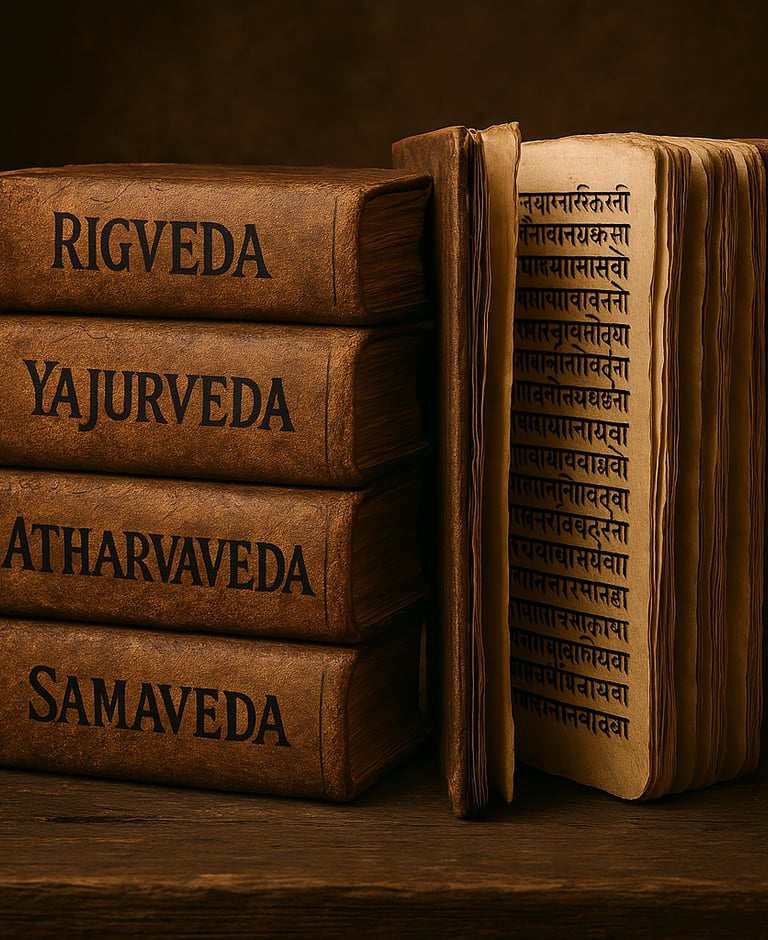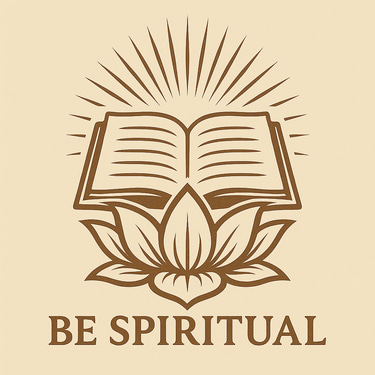Cream of ancient spiritual knowledge
Ancient timeless wisdom was captured in 'vedas' thousands of years ago. Veda means knowledge. Veda was divided into 4 books each with specialisation on some aspect of spirituality. Gist of vedas were captured in a series of books called 'Upanishads'. There are 108 of them. The knowledge of these were further distilled into 'vedanta-sutra's. However despite all the effort of writing all these books the author - renowned sage Srila Vyasadeva was not...
5/8/20252 min read


Ancient timeless wisdom was captured in 'vedas' thousands of years ago. Veda means knowledge. Veda was divided into 4 books each with specialisation on some aspect of spirituality. Gist of vedas were captured in a series of books called 'Upanishads'. There are 108 of them. The knowledge of these were further distilled into 'vedanta-sutra's. However despite all the effort of writing all these books the author - renowned sage Srila Vyasadeva was not feeling satisfied at heart. Eventually in his meditation it was revealed to him a need of a book that contains the essence of all of the vedas - similar to how milk cream is most rich in taste. That gave birth to this spiritual encylopedia - Śrīmad-Bhāgavatam.
The Vedas are compared to the desire tree because they contain all things knowable by man. They deal with regular wordly necessities as well as spiritual realization. The Vedas contain regulative principles of knowledge covering social, political, religious, economic, military, medicinal, chemical, physical and metaphysical subject matter and all that may be necessary to keep us going.
Vedanta sutras on other other hand are written in the form of 'sutras'(poetic threads) which are very dense information packs - similar to DNA in our body cells. Someone who understands the language and knows how to unpack the sutras accurately and explain the deep meaning of these instructions. If unpacked incorrectly, the purpose will not be fulfilled. Śrīmad-Bhāgavatam was written as a natural commentary to those sutras, so that it is easily comprehensible.
The encylopedia Śrīmad-Bhāgavatam begins with the definition of the ultimate source. It is a bona fide commentary on Vedas and Upanishads and gradually develops into nine volumes up to the highest state of Self realization. The only qualification one needs to study this great book of spiritual knowledge is to proceed step by step cautiously and not jump forward haphazardly as with any ordinary book. The content is organized with the original Sanskrit text, its English transliteration, synonyms, translation and purports so that one is sure to become a realized soul at the end of finishing the first nine volumes.
Explore ancient wisdom for inner peace.
© 2025. All rights reserved.
BE SPIRITUAL
